- Aspect Ratio: 2.35:1
- Video Codec: AVC/MPEG-4
- Resolution: 1080p/24 (23.976Hz)
- Audio Codec: Japanese LPCM Mono
- Subtitles: English
- Region: A (Region-Locked)
- Rating: Not Rated
- Discs: 1 (1 x Blu-ray)
- Studio: Criterion Collection
- Blu-ray Release Date: October 4, 2011
- List Price: $39.95
[amazon-product align=”right”]B005D0RDCU[/amazon-product]
Purchase Harakiri on Blu-ray at CD Universe
Shop for more Blu-ray titles at Amazon.com
Overall
[Rating:4.5/5]
The Film
[Rating:5/5]
Video Quality
[Rating:4.5/5]
Audio Quality
[Rating:3.5/5]
Supplemental Materials
[Rating:4.5/5]
Click thumbnails for high-resolution 1920X1080p screen captures
(Screen captures are lightly compressed with lossy JPEG thus are meant as a general representation of the content and do not fully reveal the capabilities of the Blu-ray format)
Editor’s Note: Portions of this review were previously published as our Harakiri [Masters of Cinema] [UK Release] Blu-ray Review.
–
The Film
[Rating:5/5]
Masaki Kobayashi (The Human Condition; Samurai Rebellion) marked his first entry into the jidai-geki (period film) genre with 1962’s Harakiri (Seppuku). A stunning condemnation of Japan’s recent militarized past and the current control over Japanese society being assumed by the nation’s super corporations, the film is a poignant and brilliantly filmed drama noted firstly for the riveting performance by Tatsuya Nakadai (Ran). Nakadai stars as Hanshiro Tsugumo, a rōnin (a masterless samurai) who is down-and-out and enters the manor of Lord Iyi, requesting to use the courtyard to commit seppuku or harakiri, a ritual suicide in a manner befitting a samurai.
It is 17th century Japan, and the country’s political structure has shifted so that the period of constant war has ended and many warlords have been removed from power. The Shogunate is in disarray, leaving many of the former Lord’s retainers without work and impoverished. They have taken to asking wealthy estate owners if they can commit hara-kiri on their property. Until now, property owners have been simply taking them in for a couple of days and then sending them away with a few coins to be rid of them. But the Iya house puts an end to this when the young Motome Chijiiwa (Akira Ishihama) shows up asking to use their courtyard for harakiri. In one of the film’s most powerful and gruesome scenes, they force the impoverished young samurai to disembowel himself with his bamboo sword; his real swords long since sold for what little cash he could get.
Kageyu Saito (Rentaro Mikuni), Lord Iyo’s Chief retainer recounts this tale to Tsugumo believing it will dissuade him from pursuing his request, but the aging samurai remains steadfast in his resolve. When he is finally brought to the courtyard to carry out the ceremony, it turns out he does have some other motives. He begins to recount the story of how he arrived at such a lowly position in life. The story picks up again, now from Tsugumo’s perspective. Through a series of flashbacks we find out that he has a connection to the young Motome Chijiiwa. Saito’s manner shifts as he realizes the real reasons behind Tsugumo coming to the Iyo estate. It is a tense scene superbly heightened by Kobayashi’s flashes back and forth between Tsugumo kneeling quietly on his white mat, speaking in a purposeful cadence, the flashbacks to Tsugumos story, and upon items in the courtyard, such as Tsugumo’s blade.
A wholly masterful first jidai-geki film that exposes the hypocrisies of the feudal samurai system with an intense score from the Japanese master Toru Takemitsu, Harakiri is a giant among Asian films that also won a 1963 Special Jury Prize at Cannes.
Video Quality
[Rating:4.5/5]
Compared to the UK Masters of Cinema release from Eureka, which used the master from the film’s Japanese owner Shochiku and looked a bit too greyish and somewhat soft, this Criterion Collection HD transfer is much darker with far better contrast, a sharper amount of detail, and a little less apparent source damage. There’s much more high frequency information here, although I did detect just a tinge of video noise, but nothing that hinders viewing pleasure. This release also seems to have had its 2.35:1 framing slightly cropped and window-boxed, losing some of the image. Still, If I had to choose between the two copies to watch, I’d definitely reach for the Criterion since it is more richly detailed.
Audio Quality
[Rating:3.5/5]
The audio was remastered at 24-bit from 35mm optical print. It is presented here in a LPCM Mono mix that has been cleaned up nicely, but is certainly not a reference by modern standards. Still, it is clean and has pretty good range for a recording of its age.
Supplemental Material
[Rating:4/5]
The Kobayashi interview and original theatrical trailer are the only extras shared on the disc between this Criterion Collection release and the Masters of Cinema release. Otherwise, we get some typically strong and in depth supplements from Criterion here that really explore Harakiri as a film and Kobayashi as a filmmaker.
The supplements provided with this release are:
- Donald Richie Introduction (1.78:1; 1080i/60) – In this video introduction, recorded exclusively for the Criterion Collection in New York in 2004, Japanese-film scholar Donald Richie analyzes important themes and motifs in Harakiri and discusses the antiauthoritarian focus of its creators.
- Masaki Kobayashi (1.33:1; 1080i/60; 00:09:06) – Filmed for the Director’s Guild of Japan on October 14, 1993, at the Haiyuza Theatre in Tokyo, this rare video interview with Masaki Kobayashi features the director reflecting on Harakiri and his collaborators. It was conducted by filmmaker Masahiro Shinoda.
- A Golden Age (1.78:1; 1080i/60; 00:14:29) – This video interview with Harakiri star Tatsuya Nakadai was conducted exclusively for the Criterion Collection in Tokyo in 2005. In it, the Japanese screen legend discusses his career and his performance in Harakiri.
- Masterless Samurai (1.78:1; 1080i/60; 0012:51) – In this 2005 video interview, conducted in Tokyo exclusively for the Criterion Collection, Harakiri screenwriter Shinobu Hashimoto talks about his creative process in writing the script and recalls the reaction to the film.
- Trailer (2.35:1; 1080i/60)
- Booklet: The booklet features the essay “Harakiri: Kobayashi and History” by film scholar Joan Mellen and a reprint of Mellen’s 1972 interview with Kobayashi. If you read nothing else from the booklet, at least read the interview with Kobayshi to hear the man’s own words to get a sense of him and what drove him to create. The booklet also features film credits and information on the transfer.
The Definitive Word
Overall:
[Rating:4.5/5]
Marvelous, riveting, masterful, and precise, Kobayshi’s Harakiri (Seppuku) is one of the greatest samurai films ever made, rivaling anything from Kurosawa, which says a lot, considering this was a first outing in this genre for the filmmaker. The Criterion Collection has created the reference release, continuing their unparalleled tradition in the field of bringing great works of film to home video in at the best possible quality.
Additional Screen Captures
–
[amazon-product align=”right”]B005D0RDCU[/amazon-product]
Purchase Harakiri on Blu-ray at CD Universe
Shop for more Blu-ray titles at Amazon.com
Overall
[Rating:4.5/5]
The Film
[Rating:5/5]
Video Quality
[Rating:4.5/5]
Audio Quality
[Rating:3.5/5]
Supplemental Materials
[Rating:4.5/5]

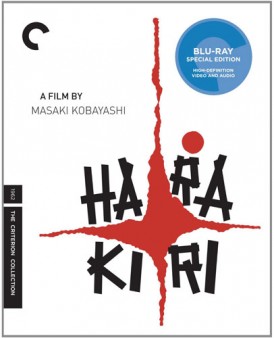

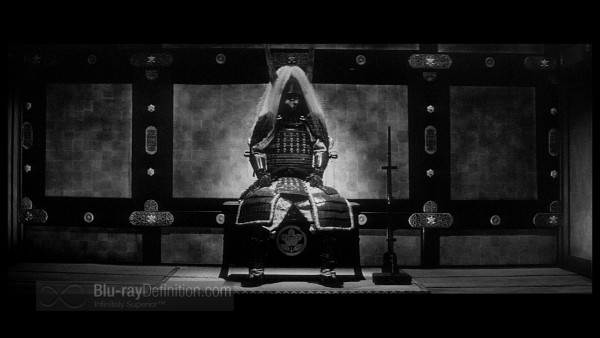
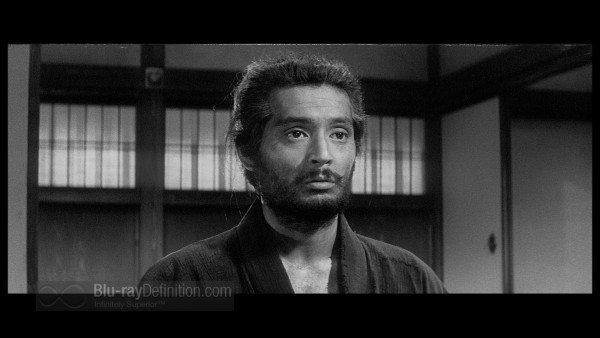
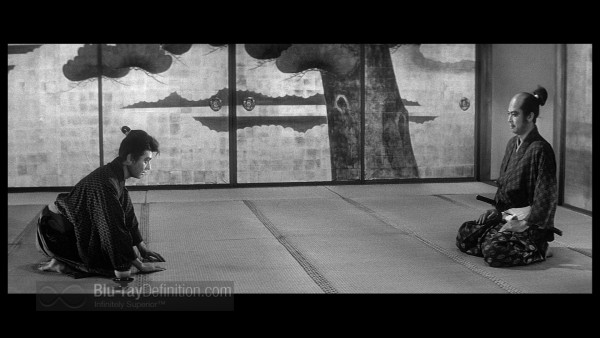
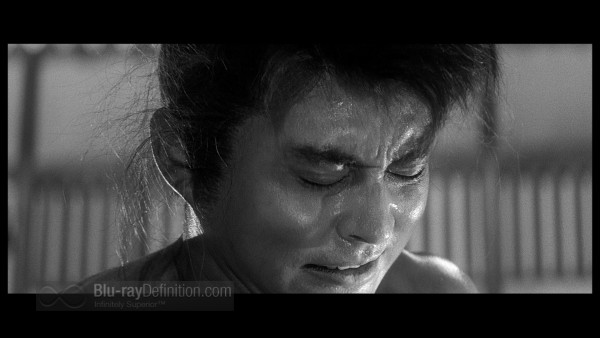
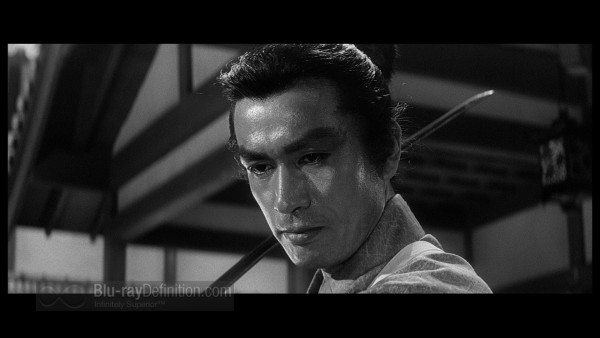
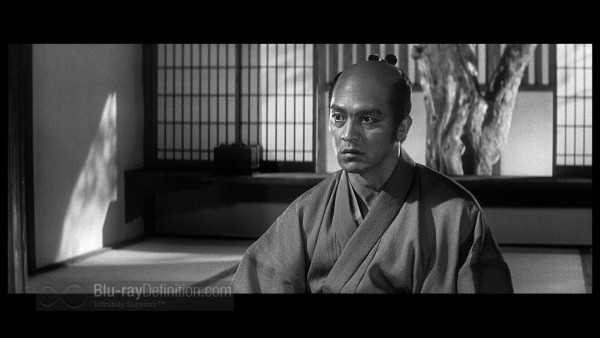
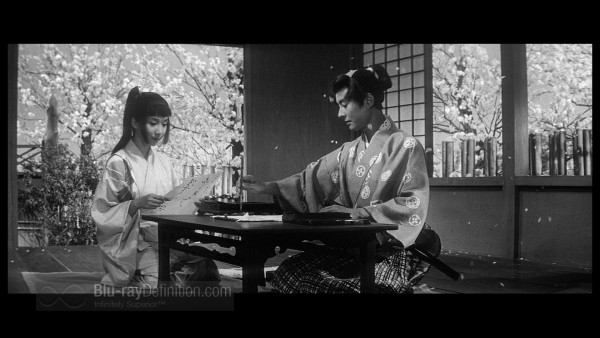
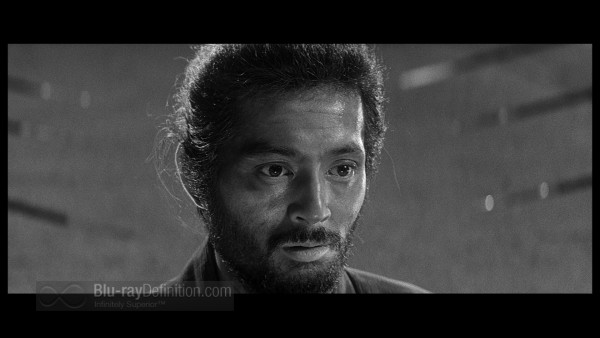
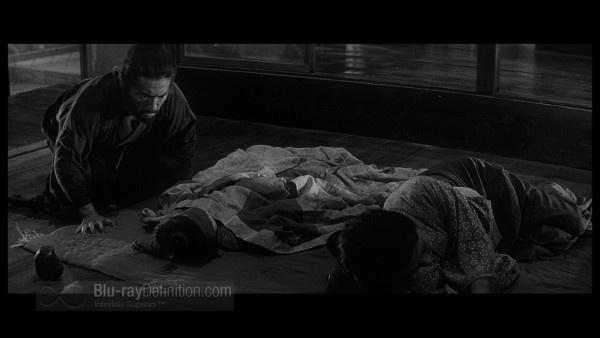
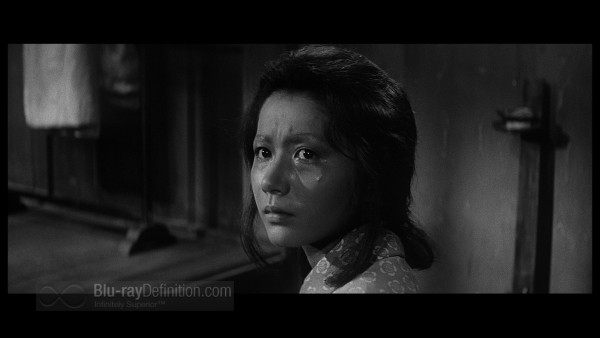
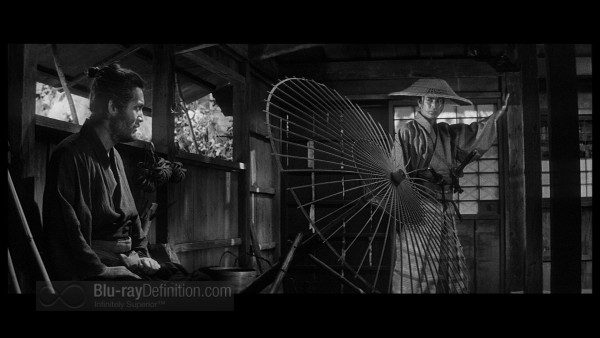
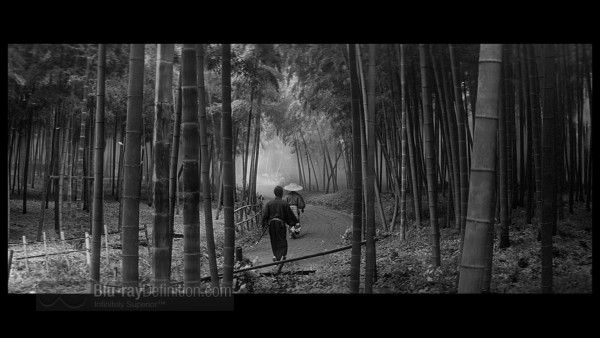
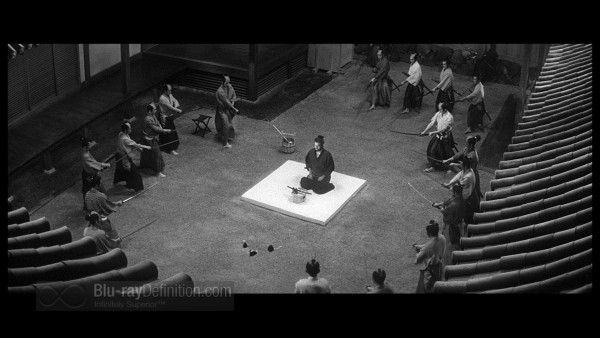


A great review of an equally great chambara movie. Harakiri was the movie that, in my personal opinion, presented the dark side of Samurai way of life for the first time on the celluloid. The movie’s finale sequence is blood-cuddling and it’s sheer power can make a cold-blooded appear jittery. In fact the same can be said about the movie as a whole. You review has helped me get a deeper insight into Harakiri. I look forward to reading more of your reviews.
Also, please do check out my review of Masaki Kobayashi’s Harakiri.
http://www.apotpourriofvestiges.com/2012/06/harakiri-1962-japanese-auteur-masaki.html